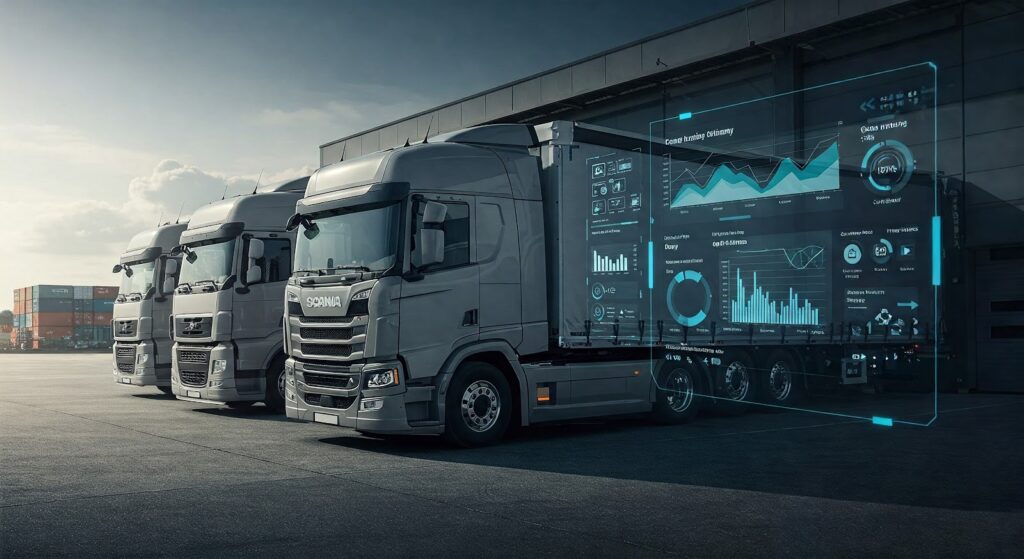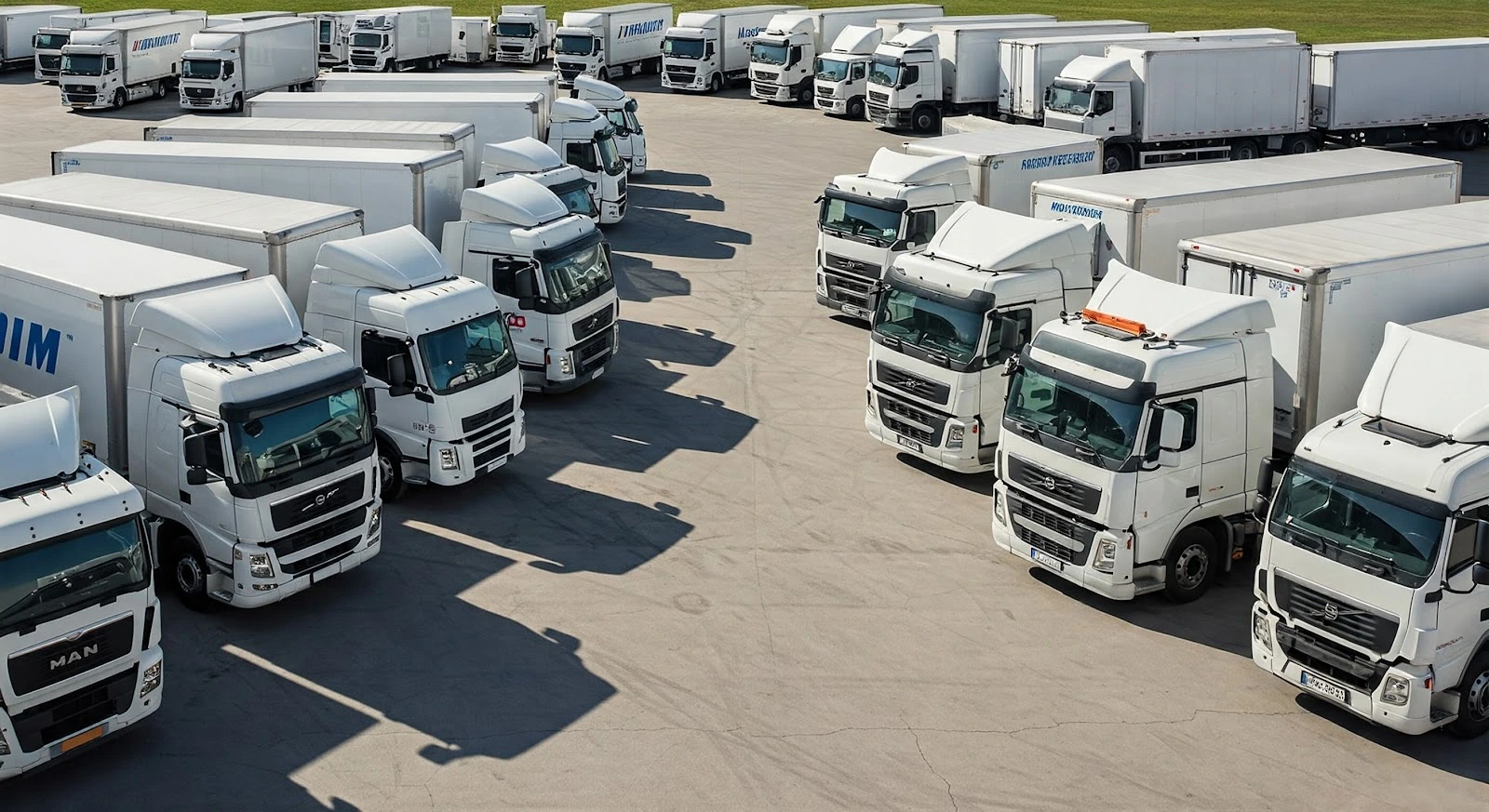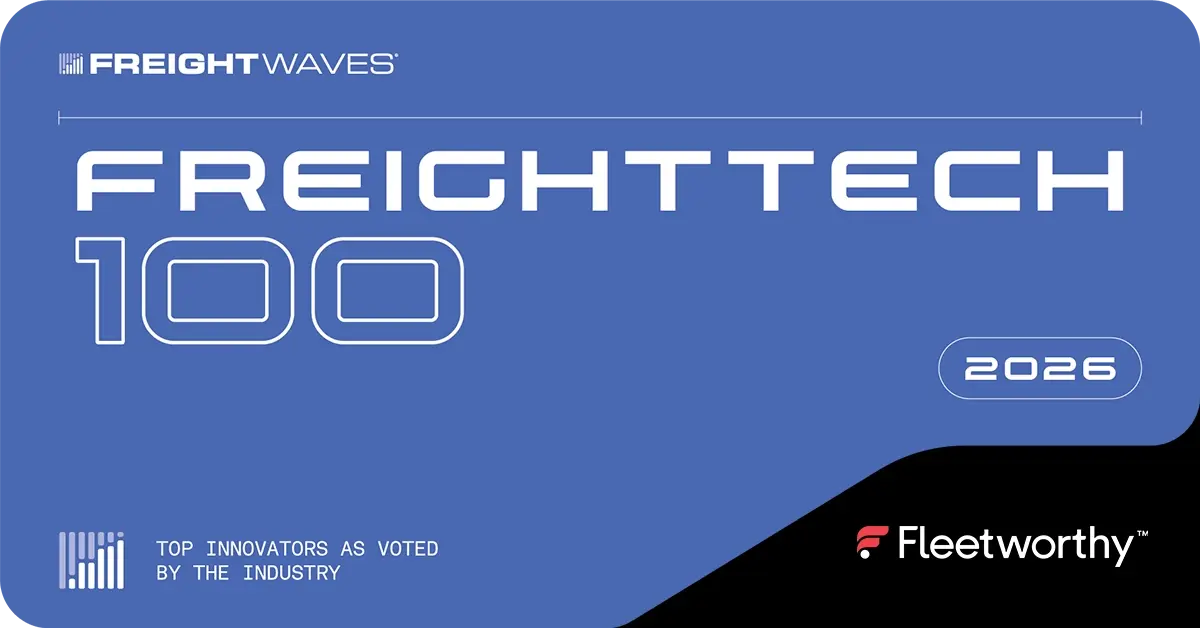The fleet management industry is experiencing unprecedented growth, fueled by rapid technological advancements and the evolving demands of global supply chains. As commercial transportation and logistics continue to expand, the market is projected to grow by $52.23 billion between 2025 and 2029.
Fleet managers are turning to advanced solutions to optimize performance, reduce costs, and enhance safety. The integration of telematics, AI-driven analytics, and automated compliance management is revolutionizing fleet operations, making real-time visibility and proactive decision-making the new standard.
Key Drivers of Fleet Management Growth
Several factors contribute to the rapid expansion of the fleet management market:
1. E-Commerce & Last-Mile Delivery Optimization
After Covid-19, the growth in online shopping has resulted in circumstances where businesses are under increasing pressure to provide faster, more reliable deliveries while keeping costs low and in check. The demand for real-time tracking and route optimization has never been higher, as consumers expect same-day or next-day shipping as the norm.
Fleet management solutions play a pivotal role in helping businesses streamline last-mile delivery by:
- Optimizing delivery routes to reduce fuel consumption and delivery times.
- Providing real-time tracking for both fleet managers and customers, improving transparency.
- Enhancing fleet utilization by automating dispatch and load balancing.
- Reducing failed deliveries through AI-driven delivery window predictions and driver rerouting.
- Minimizing operational costs by preventing unnecessary mileage and downtime.
By leveraging advanced telematics and AI-powered logistics, businesses can meet consumer expectations while improving efficiency and profitability. As e-commerce continues to expand, the need for intelligent fleet management solutions will only grow, making it essential for companies to adopt data-driven, automated approaches to last-mile delivery.
2. Telematics & IoT Integration
The integration of GPS tracking, fuel monitoring, predictive maintenance, and driver behavior analytics is revolutionizing fleet management, enabling businesses to operate more efficiently and safely. Telematics and IoT-powered solutions provide real-time insights that help fleet operators make data-driven decisions, enhancing productivity and compliance.
Fleet management systems leveraging IoT technology offer:
- Real-time GPS tracking for improved fleet visibility and route optimization.
- Fuel monitoring systems to detect excessive fuel consumption and reduce costs.
- Predictive maintenance alerts to prevent breakdowns and extend vehicle lifespan.
- Driver behavior analytics to identify unsafe driving habits and improve road safety.
- Automated compliance tracking to ensure adherence to FMCSA, HOS, and IFTA regulations.
The ability to monitor vehicles in real time, predict potential issues, and automate reporting makes telematics an essential tool for modern fleet management. As technology continues to evolve, the adoption of AI-driven telematics solutions will further enhance fleet optimization, ensuring seamless operations in an increasingly connected transportation ecosystem.
3. Rising Fuel & Maintenance Costs
With fuel prices fluctuating and vehicle maintenance expenses increasing, fleet owners face mounting financial pressures. Automated fleet management platforms provide data-driven solutions to help businesses optimize fuel consumption, minimize downtime, and extend vehicle lifespan.
Key benefits of leveraging automated fleet management for cost savings include:
- Fuel efficiency optimization through AI-powered route planning and fuel usage monitoring.
- Idle time reduction by identifying and minimizing unnecessary engine running.
- Automated maintenance scheduling to prevent costly breakdowns and unplanned repairs.
- Remote diagnostics and alerts that detect early signs of mechanical issues before they escalate.
- Enhanced asset utilization by ensuring vehicles are operating at peak efficiency.
As fuel and maintenance costs continue to rise, companies that adopt smart, cost-saving strategies will position themselves for long-term profitability and competitive advantage in the transportation industry.
4. Regulatory Compliance & Sustainability Initiatives
Governments worldwide are implementing stricter emissions standards, enhanced safety regulations, and more comprehensive operational reporting requirements. Fleet operators must stay ahead of these evolving mandates to avoid fines. Adopting automated compliance solutions ensures fleets meet industry regulations.
Fleet management systems help businesses maintain compliance by:
- Automating FMCSA, IFTA, and HOS reporting to eliminate manual errors and ensure regulatory adherence.
- Providing real-time compliance alerts to prevent violations before they occur.
- Tracking vehicle emissions and fuel consumption to meet sustainability goals.
- Ensuring proper maintenance and inspections through digital record-keeping and automated scheduling.
- Facilitating the transition to electric and hybrid vehicles with energy consumption monitoring and charging station integration.
Beyond compliance, the push for sustainability in fleet management is gaining momentum, with electric and hybrid fleet adoption becoming a key industry trend.

Advancing Fleet Efficiency with Smart Technology
Fleet management is no longer just about tracking vehicles—it’s about creating an intelligent, data-driven ecosystem that enhances efficiency, safety, and compliance. Fleet operators now have the tools to optimize routes, improve fuel efficiency, and proactively address vehicle maintenance issues before they escalate.
Businesses that embrace smart technology gain a competitive advantage by maximizing productivity, minimizing downtime, and ensuring compliance with industry regulations. As fleets continue to grow in complexity, adopting automated and data-driven fleet management solutions is no longer a luxury—it’s a necessity for long-term success.
1. Telematics & Real-Time Tracking
By leveraging GPS-enabled tracking systems, fleet operators can gain instant visibility into their assets, ensuring efficient dispatching, improved routing, and better fleet utilization.
2. Predictive Maintenance & AI Analytics
Fleet downtime due to unexpected breakdowns can lead to costly delays, lost revenue, and safety risks. With AI-powered predictive maintenance and analytics, fleet operators can proactively address vehicle health issues before they escalate, ensuring their fleets remain operational with minimal disruptions.
By leveraging AI-driven maintenance solutions, fleet operators can transform reactive repair strategies into proactive maintenance plans, reducing unexpected costs and maximizing vehicle uptime.
3. Automated Routing & Dispatching
With AI-driven automation, fleet managers can optimize routes in real-time, ensuring drivers take the most efficient paths while avoiding unnecessary delays.
4. Seamless Integration with Enterprise Systems
Modern fleet management is no longer a standalone operation—it must work in harmony with other business-critical systems. By integrating fleet management platforms with ERP (Enterprise Resource Planning) and CRM (Customer Relationship Management) systems, companies can achieve greater visibility, automation, and coordination across their entire business infrastructure.
By integrating fleet management software with existing enterprise systems, businesses can create a unified, data-driven ecosystem that improves efficiency, accuracy, and responsiveness. This ensures that fleet operations are fully aligned with broader business goals, driving profitability and long-term success.
5. Mobile Fleet Management & Driver Communication
The ability to communicate in real-time and access fleet data on the go is crucial for modern fleet operations. Mobile fleet management solutions empower drivers and fleet managers with instant access to essential information. With real-time access to mission-critical data and instant communication tools, fleet operations can remain agile, proactive, and responsive to changing conditions on the road.
The Road Ahead: Fleet Management as a Business Necessity
As businesses continue to embrace digital transformation, the market will see further advancements in:
- AI-powered predictive analytics to prevent vehicle failures and optimize maintenance.
- Autonomous driving technology that enhances safety and efficiency.
- Sustainability initiatives, including the electrification of fleet vehicles.
Companies that leverage smart fleet solutions today will gain a competitive advantage.
Fleetworthy: The Ultimate Partner in Fleet Compliance & Efficiency
Fleetworthy provides cutting-edge fleet management solutions that go beyond compliance to help businesses optimize safety & efficiency.
- Telematics & GPS Tracking: Gain real-time insights into fleet activity.
- Automated Compliance Management: Stay ahead of FMCSA, DOT, and IFTA regulations.
- Toll & Weigh Station Bypass Solutions: Save time and reduce overhead costs.
Contact Fleetworthy today and take the first step toward a more efficient, compliant, and profitable fleet operation.




